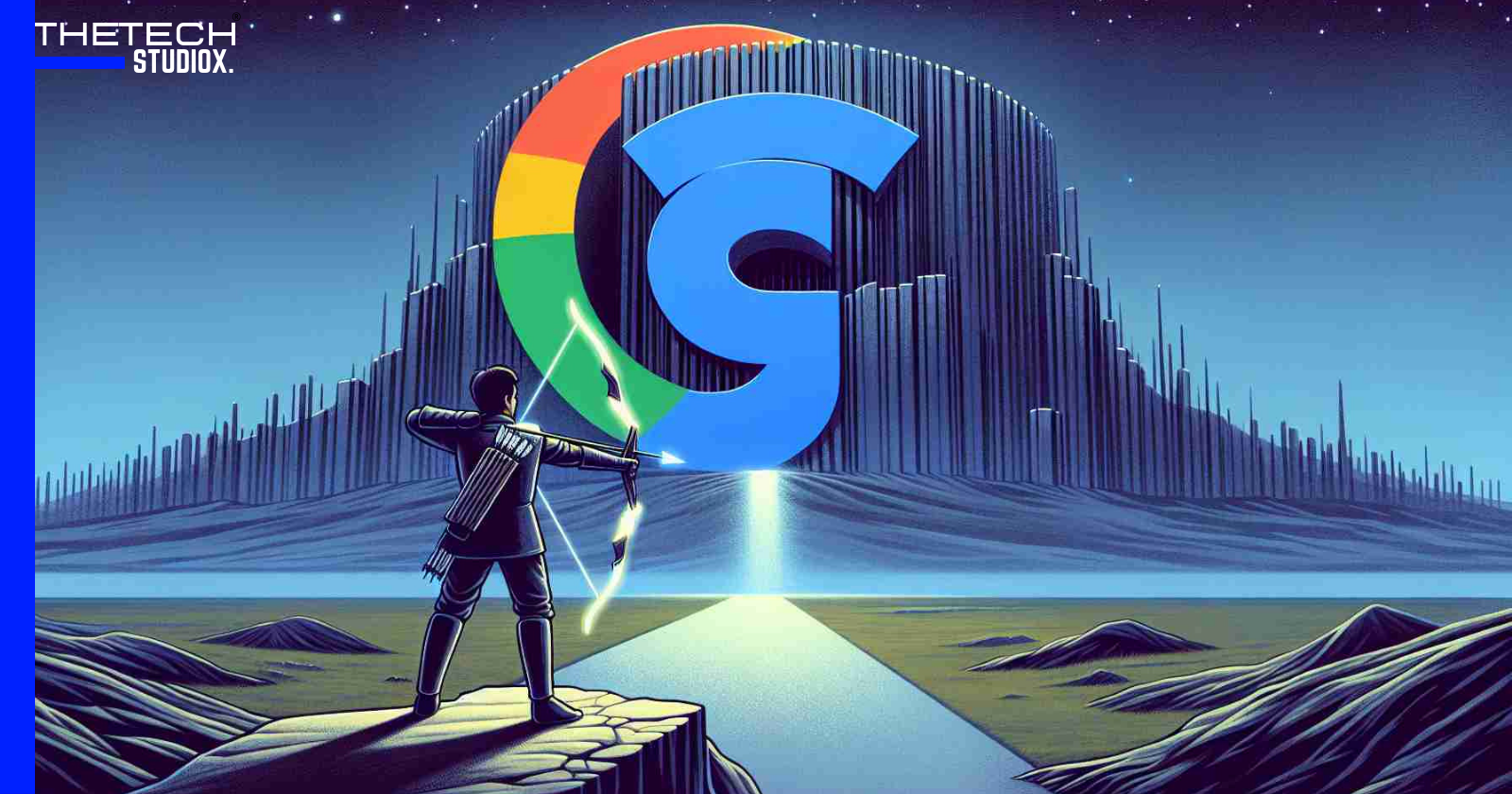Table of Contents
OpenAI’s Revolutionary Web Search
In recent buzz within the tech community, rumors abound regarding OpenAI’s ambitious venture into the realm of web search, potentially positioning itself as a formidable challenger to the long-standing dominance of Google. While details remain shrouded in mystery, the speculation surrounding OpenAI’s development of a novel search tool suggests a significant paradigm shift in the digital landscape.
OpenAI’s Alleged Search Endeavor: Unraveling the Speculations
Amidst the swirling rumors and whispers within the tech community, the notion of OpenAI venturing into the realm of web search has sparked widespread curiosity and speculation. What exactly does this alleged endeavor entail, and what implications might it have for the digital landscape?
Delving into the heart of the matter, the conjecture surrounding OpenAI’s foray into web search stems from various sources, each offering tantalizing glimpses into the company’s potential aspirations. While concrete details remain elusive, the mere possibility of OpenAI challenging the supremacy of established players like Google and Bing has set tongues wagging across tech forums and industry circles.
As enthusiasts and analysts alike attempt to decipher the cryptic clues scattered throughout OpenAI’s recent activities, questions abound regarding the scope, scale, and strategic intent of this purported venture. Could OpenAI truly be gearing up to disrupt the traditional paradigms of information retrieval, or are these speculations merely a product of overactive imaginations?
In the absence of official confirmation from OpenAI itself, unraveling the intricacies of this alleged search endeavor becomes akin to solving a complex puzzle, with each new piece of information offering fresh insights and fueling further speculation. Yet, amidst the uncertainty, one thing remains clear: the prospect of OpenAI stepping into the arena of web search has ignited a fervor of anticipation and intrigue that shows no signs of abating.
Exploring the Foundations: Insights into OpenAI’s Strategy
To comprehend the potential magnitude of OpenAI’s alleged foray into web search, one must delve into the foundational principles that underpin the company’s strategic vision. At the core of OpenAI’s ethos lies a commitment to pushing the boundaries of artificial intelligence and harnessing its transformative power to shape the future of human-machine interaction.
With a track record of pioneering breakthroughs in natural language processing and machine learning, OpenAI has positioned itself at the vanguard of AI innovation, earning accolades and recognition for its groundbreaking achievements. Against this backdrop of excellence and innovation, the prospect of OpenAI venturing into web search represents a logical extension of its mission to democratize access to knowledge and information.
By leveraging its expertise in developing sophisticated AI models, OpenAI seeks to redefine the search experience, transcending the limitations of conventional keyword-based algorithms to deliver a more intuitive, contextually aware approach to information retrieval. In doing so, OpenAI aims to empower users with unprecedented access to relevant and actionable insights, transforming the way we navigate and interact with the vast expanse of digital content.
The Integration Conundrum: ChatGPT and Web Search
Central to the speculation surrounding OpenAI’s alleged search endeavor is the role of ChatGPT, the company’s flagship language model renowned for its ability to generate human-like text and engage in natural language conversations. As pundits and observers ponder the potential integration of ChatGPT into OpenAI’s search ecosystem, questions arise regarding the synergies and challenges inherent in merging conversational AI with traditional web search functionality.
At the crux of the integration conundrum lies the quest for seamless interoperability between ChatGPT’s conversational capabilities and the core functionalities of a web search engine. How can OpenAI leverage ChatGPT’s contextual understanding and nuanced comprehension to enhance the relevance and accuracy of search results? What strategies must be employed to mitigate potential pitfalls such as bias, misinformation, and algorithmic opacity?
As OpenAI grapples with these complex challenges, the integration of ChatGPT into its search offering represents a pivotal juncture in the evolution of AI-driven information retrieval. By harnessing the power of conversational AI to augment traditional search methodologies, OpenAI aims to revolutionize the way users interact with and extract value from the wealth of digital content available online.
Microsoft’s Steadfast Support: Fueling OpenAI’s Ambition
Fueling OpenAI’s ambitious quest to redefine the search landscape is the unwavering support and collaboration of industry titan Microsoft. With a shared commitment to advancing the frontiers of artificial intelligence, Microsoft has emerged as a key strategic partner in OpenAI’s journey towards innovation and excellence.
Through strategic investments and collaborative initiatives, Microsoft has played a pivotal role in accelerating the development and deployment of OpenAI’s groundbreaking AI technologies. From integrating OpenAI’s models into products like Bing web search to co-developing next-generation AI solutions, Microsoft’s steadfast support has provided OpenAI with the resources, expertise, and infrastructure needed to realize its vision of AI-driven search.
Central to this partnership is Microsoft’s recognition of the transformative potential of OpenAI’s technology in revolutionizing the way we interact with information and navigate the digital landscape. By leveraging Microsoft’s vast resources and global reach, OpenAI is poised to unleash a new era of intelligent search that transcends the boundaries of traditional keyword-based algorithms.
Beyond Keywords: OpenAI’s Vision for Intelligent Search
At the heart of OpenAI’s alleged search endeavor lies a bold vision for intelligent search that transcends the limitations of conventional keyword-based methodologies. By harnessing the power of artificial intelligence and machine learning, OpenAI aims to revolutionize the search experience, ushering in a new era of contextual understanding and personalized relevance.
Unlike traditional search engines that rely primarily on keyword matching and link analysis, OpenAI’s approach to intelligent search is grounded in the principles of natural language understanding and semantic comprehension. By interpreting user queries in their full linguistic context and discerning underlying intent and meaning, OpenAI’s search engine promises to deliver more relevant, accurate, and personalized results tailored to the unique needs and preferences of each individual user.
Central to this vision is the integration of advanced AI models like ChatGPT, which possess the ability to engage in natural language conversations and understand complex nuances of human communication. By leveraging the capabilities of conversational AI, OpenAI aims to bridge the gap between user queries and relevant information, facilitating more intuitive and interactive search experiences that empower users to explore, discover, and engage with content in new and meaningful ways.
Challenges on the Horizon: OpenAI’s Uphill Battle
Despite the promise and potential of OpenAI’s alleged search endeavor, significant challenges loom on the horizon, threatening to derail its ambitious aspirations. Chief among these challenges is the formidable dominance of established players like Google, whose stranglehold on the search market poses a formidable barrier to entry for would-be challengers.
Past attempts by industry behemoths like Microsoft to wrest market share from Google through AI-driven search experiences have yielded limited success, underscoring the daunting obstacles that await OpenAI on its quest for search supremacy. In addition to overcoming entrenched competition, OpenAI must navigate a host of technical, regulatory, and user adoption challenges that accompany the development and deployment of AI-driven search technologies.
Moreover, the inherent complexities and nuances of natural language understanding pose formidable challenges in ensuring the accuracy, relevance, and fairness of search results generated by AI-powered algorithms. From mitigating biases and misinformation to addressing concerns around user privacy and data security, OpenAI must confront a myriad of ethical and operational challenges as it seeks to revolutionize the search landscape.
The Future of Search: A Glimpse into Tomorrow
In the grand tapestry of technological innovation, OpenAI’s alleged foray into web search represents a pivotal moment in the evolution of digital information retrieval. As the boundaries of artificial intelligence continue to expand, the possibilities for transformative change are limited only by the scope of our imagination.
In envisioning the future of search, OpenAI offers a glimpse into a world where information is not merely accessed but understood, where search engines anticipate our needs and preferences with uncanny accuracy, and where the boundaries between man and machine blur into insignificance. From personalized recommendations to intelligent insights, the potential applications of AI-driven search are as vast and varied as the digital landscape itself.
Yet, amidst the promise and potential of tomorrow, challenges abound, and uncertainties loom large on the horizon. Whether OpenAI can surmount these obstacles and emerge triumphant in its quest to redefine the search experience remains to be seen. Yet, one thing is certain: the future of search is no longer confined to the realms of speculation but beckons as a tantalizing frontier of possibility and promise.
Conclusion: A Bold Leap into the Unknown
In the ever-evolving landscape of technology, the emergence of OpenAI as a contender in the realm of web search signifies a pivotal moment in the digital revolution. While the road ahead may be fraught with challenges, the prospect of innovation and progress propels us toward a future where the possibilities are limitless.
OpenAI’s foray into web search marks a paradigm shift in the digital landscape, heralding a new era of AI-driven information retrieval.
Also Read: OpenAI’s 2023 Annualized Revenue Soars: $1.6 Billion Triumph!
FAQs
What is OpenAI’s rumored web search product?
OpenAI’s rumored web search product is speculated to be a revolutionary AI-driven search engine that aims to challenge the dominance of established players like Google and Bing. While details remain scarce, the endeavor is expected to leverage OpenAI’s expertise in artificial intelligence and natural language processing to deliver a more intuitive, contextually aware search experience.
How does OpenAI plan to challenge Google in the search domain?
OpenAI plans to challenge Google in the search domain by leveraging advanced AI technologies to deliver a search experience that transcends the limitations of traditional keyword-based algorithms. By harnessing the power of natural language understanding and semantic comprehension, OpenAI aims to provide more relevant, accurate, and personalized search results tailored to the unique needs and preferences of each user.
What role does ChatGPT play in OpenAI’s search endeavor?
ChatGPT, OpenAI’s flagship language model renowned for its ability to generate human-like text and engage in natural language conversations, is expected to play a central role in OpenAI’s search endeavor. By integrating ChatGPT into its search ecosystem, OpenAI aims to enhance the relevance and accuracy of search results by leveraging its contextual understanding and nuanced comprehension capabilities.
Why is Microsoft’s involvement crucial in OpenAI’s search initiative?
Microsoft’s involvement is crucial in OpenAI’s search initiative due to its strategic partnership and substantial investments in the AI startup. Microsoft has already incorporated OpenAI’s models across products like Bing web search and Copilot, providing OpenAI with the resources, expertise, and infrastructure needed to realize its vision of AI-driven search.
What are the potential implications of OpenAI’s entry into the web search market?
The potential implications of OpenAI’s entry into the web search market are far-reaching and profound. By introducing a new paradigm of AI-driven search, OpenAI has the potential to disrupt the traditional search landscape, challenge the dominance of incumbents like Google, and usher in a new era of intelligent information retrieval. Additionally, OpenAI’s search initiative has the potential to empower users with more relevant, accurate, and personalized search results, thereby enhancing the overall search experience for millions of users worldwide.





Your point of view caught my eye and was very interesting. Thanks. I have a question for you.